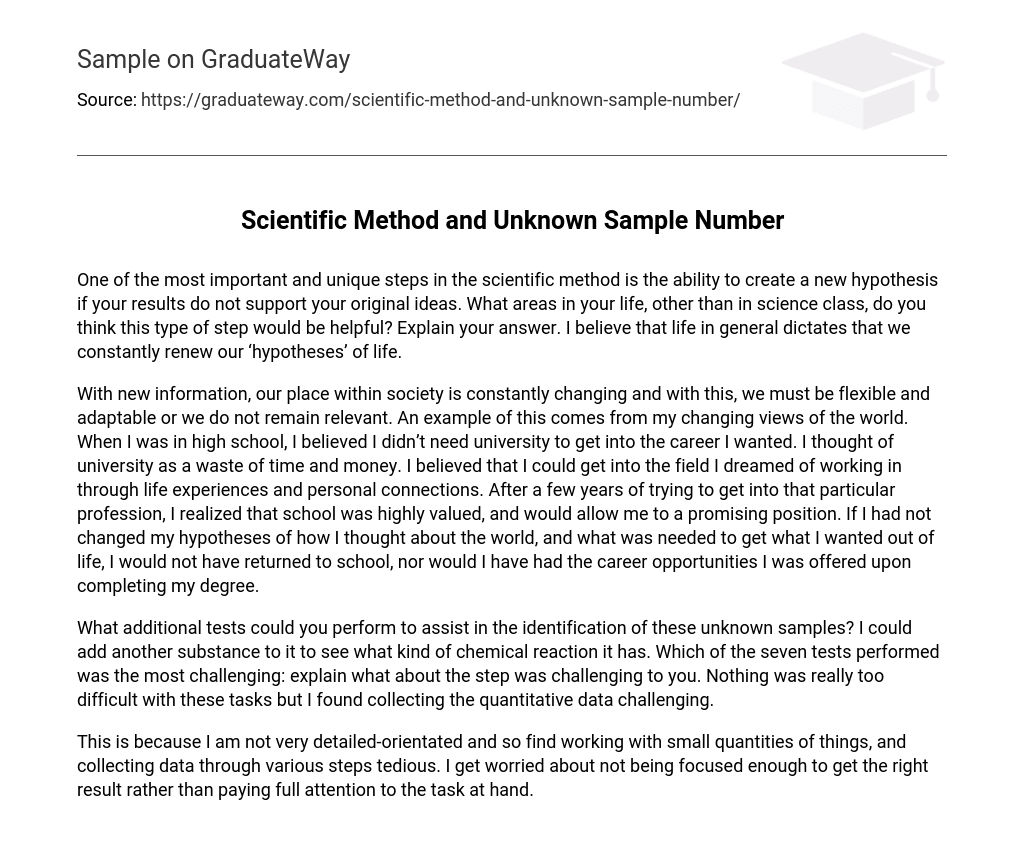One of the most important and unique steps in the scientific method is the ability to create a new hypothesis if your results do not support your original ideas. What areas in your life, other than in science class, do you think this type of step would be helpful? Explain your answer. I believe that life in general dictates that we constantly renew our ‘hypotheses’ of life.
With new information, our place within society is constantly changing and with this, we must be flexible and adaptable or we do not remain relevant. An example of this comes from my changing views of the world. When I was in high school, I believed I didn’t need university to get into the career I wanted. I thought of university as a waste of time and money. I believed that I could get into the field I dreamed of working in through life experiences and personal connections. After a few years of trying to get into that particular profession, I realized that school was highly valued, and would allow me to a promising position. If I had not changed my hypotheses of how I thought about the world, and what was needed to get what I wanted out of life, I would not have returned to school, nor would I have had the career opportunities I was offered upon completing my degree.
What additional tests could you perform to assist in the identification of these unknown samples? I could add another substance to it to see what kind of chemical reaction it has. Which of the seven tests performed was the most challenging: explain what about the step was challenging to you. Nothing was really too difficult with these tasks but I found collecting the quantitative data challenging.
This is because I am not very detailed-orientated and so find working with small quantities of things, and collecting data through various steps tedious. I get worried about not being focused enough to get the right result rather than paying full attention to the task at hand.





